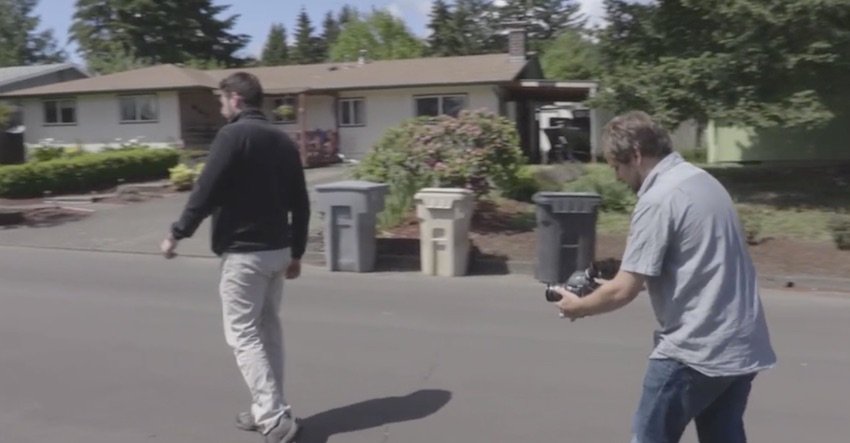It’s nearly impossible to emulate smooth, Steadicam-like footage when you’re shooting handheld and walking at the same time, but having a subject in your frame actually helps to hide some of the jitter. In this lesson for Slavik Boyechko’s course about handheld video we’ll cover some tips and tricks to help you capture a moving subject on video.
Creating A Stable Shot In Motion
When it cones to shooting stable footage, the best method is to move yourself and your camera to a good spot, then set up to capture the desired shot in a way that provides the best stability. Sometimes you do want that to add a little movement though — like a handheld steady cam type of shot.
The first thing to do is put on your widest lens on. If you don’t have a wide lens, zoom out to your widest setting. Instead of holding your camera out in front of you or low, keep the camera close to your body and to walk as lightly as possible. Instead of taking big steps where the camera is moving up and down, you really want to be taking micro steps, being aware of the sway, and the rise and fall of your movements.
In Practice
Here is a scenario. I have a super-wide lens on and I want to move forward. To do this, I’ll keep my elbows tucked into my body and move as slowly as I can. There’s some left and right movement to this, so I bring the camera closer to me. Having a person walking does a great job at masking some of the jitters, as we’re both moving.



Like always, you want to make sure the settings and exposure are correctly set as well as using autofocus — a big help for these moving shots. If you don’t have a camera or lens with that capability you try to be aware of your distance, while trying to remain within the focal range. You might be tempted to use the eyecup for extra stability, though I generally don’t use it here because the safety concerns.
The other thing you want to be careful of is the minimal focus distance of your lens. Often when you get too close, around a metre, the lens will not be able to focus on anything. You’ll have to maintain that minimal distance which often is about three feet. Sometimes it may feel like your subject is moving too fast, if so, its okay to direct and let them know.
Conclusion
That’s how we shoot a moving subject. Start with your widest lens, or zoom out to the widest setting on your current lens, keep the camera firm and close to you, and take small steps as you walk. Capture a variety of shots that you can edit together, including in front, behind, and to the side of them, as well as cutaways such as their feet walking.
In the next we’re going to tackle a walk and talk with two subjects, and all the ways we can strategize and cut together a variety of shots into a sequence.







